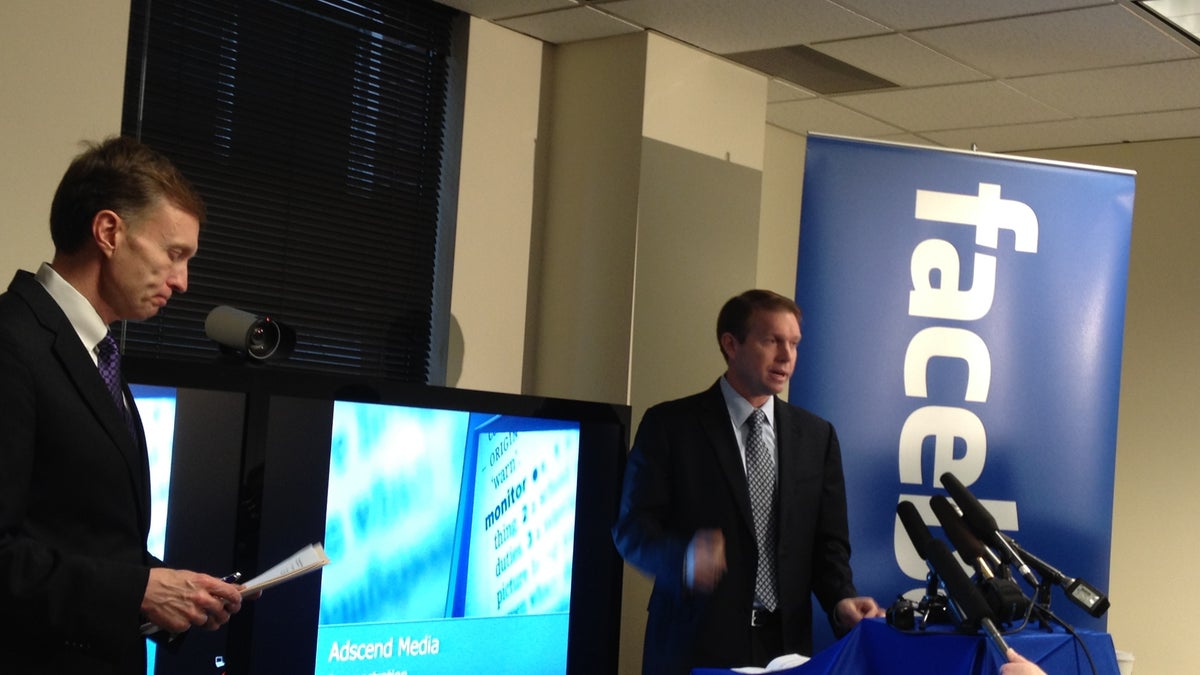Alleged Facebook 'likejacker' settles with Washington state
Adscend Media agrees to not trick Facebook users with bogus "like" links and pay $100,000 in attorneys fees. That's a fraction of the $20M or so the company is accused of generating from likejacking scams.

Adscend Media, accused by the Washington state attorney general in January of running a "likejacking" scam on Facebook, agreed today to a consent decree to stop spamming Facebook users and pay the state $100,000 in attorneys fees.
Facebook, which also sued Adscend in January over likejacking claims, settled that case for undisclosed terms last week.
In the state's suit, filed in U.S. District Court in Seattle, it accused Adscend of tricking Facebook users into clicking links that then mark a site as one they "like" on their Facebook news feed. That, in turn, lures friends of that user to click the link as well, putting the site in their news feeds as well, creating a viral cycle. The sites then pay the likejacker for the click referrals.
"Today's settlement puts a stop to Adscend's 'likejacking' and other misleading tactics that led Facebook users to fork over personal information or buy subscription services from sites that appeared to be recommended by friends," Washington State Attorney General Rob McKenna said in a statement.
When McKenna announced the case in a press conference in January, he said Adscend had generated $20 million a year from its alleged likejacking scams. But the consent decree does not recoup any of that money.
Assistant Attorney General Paula Selis, who heads the office's Consumer Protection High-Tech Unit and was the lead attorney on the case, would only say today that McKenna's $20 million claim was accurate based on the information that the state had at the time. She wouldn't disclose the amount she now believes Adscend has generated from its alleged scam, saying information produced in settlement talks is confidential.
"We believe we have a better understanding of what they've taken in," Selis said.
Moreover, the $20 million figure was an amount that covered Adscend's sales nationally. McKenna only represents Washington state residents, and a settlement with the state could only reflect revenue from there.
Adscend chief executive Fehzan Ali said the attorney general's estimate of the company's sales were "insanely inaccurate."
"Our total revenues are a fraction of that," Ali said.
Moreover, Ali noted that the consent decree "speaks volumes" about the attorney general's allegations. The settlement calls for Adscend to do much of what Ali said the company is already doing to prevent likejacking. And the $100,000 that Adscend will pay the state is a far cry from the amount McKenna originally accused the company of generating.
"We're extremely satisfied with the end result," Ali said.
Adscend's lawyer, Mark Rosenberg, went a step farther, saying the suit was politically motivated since McKenna is running for governor of Washington state.
"This is an election-year stunt gone wrong," Rosenberg said.
The $100,000 payment was purely a business decision, based estimates of the cost of continuing the litigation, he said.
"You cut your losses and move forward," Rosenberg said.
Selis, who is not a political appointee, said she pursued the case to protect Washington state residents from spam. And she said the settlement will do that, setting an example for would-be likejackers that Washington state will prosecute them if they violate anti-spamming laws.
"This has nothing to do with an election year," Selis said.
The settlement enjoins Adscend from initiating messages that contain misleading or false headers or those that hide the true identity of the sender. It also requires Adscend to include "clear and conspicuous" identification that messages are advertisements or solicitations. And Adscend, which did not admit liability in the case, has to maintain a monitoring program that includes random, daily analysis of its affiliates to ensure the company's clients and partners do not violate the terms of the settlement.
One of these alleged Adscend scams featured a Facebook post that offers the promise of a salacious video of someone's ex-girlfriend. Users who clicked on the post got a pop-up window seeking "Age Verification" that they need to click on to proceed. But when they click on the link, it gets shared in their Facebook news feed. And users are then also redirected to an Adscend advertiser site, for which the company receives money.
Here's a copy of the consent decree:

